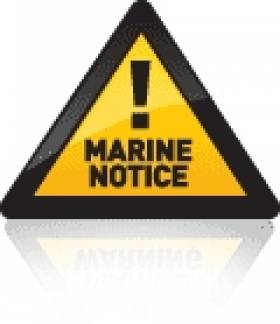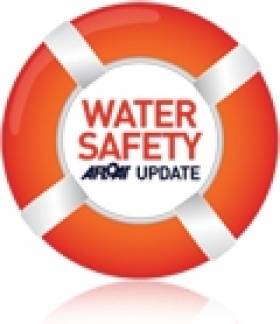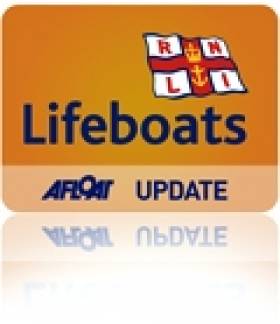Displaying items by tag: Emergency Position Indicating Radio Beacon
Important Safety Information for the Attention of Users of Emergency Position Indicating Radio Beacons
The Irish Maritime Administration of the Department of Transport, Tourism and Sport wishes to bring important safety information to the attention of users of Emergency Position Indicating Radio Beacons (EPIRBs).
The purpose of this notice is:-
• to highlight the importance of regular maintenance of EPIRBs by their owners;
• to highlight the obligation to register EPIRBs; and
• to advise users of certain GME EPIRBs that these have been the subject of a safety alert by the manufacturer.
It is vital for the safety of users of EPIRBs that you read and note the advice provided in the Marine Notices below which can be read on the Department's website at www.dttas.ie:
• Marine Notice No. 38 of 2013 which deals with the care and maintenance of EPIRBs, including the requirement for inspection and testing by owners. This Marine Notice also indicates that it is mandatory for all EPIRBs to be registered with the Irish Maritime Administration, and that changes to registered beacons must also be notified. If you own an EPIRB and have not yet registered it, or if you wish to notify any changes in ownership (or any other changes), please contact the Irish Maritime Administration as soon as possible. EPIRB registration is free of charge.
• Marine Notice No. 63 of 2013 which deals with a safety alert on GME EPIRBs. In the event of any EPIRB tested by the owner failing to produce a positive self-test result, owners should immediately contact their point of purchase or the manufacturer, or the GME email hotline at [email protected], as appropriate.
For any further enquiries please contact:
Maritime Services Division, Irish Maritime Administration, Department of Transport, Tourism and Sport, Leeson Lane, Dublin 2, Ireland.
Email: [email protected] . Telephone: 01-678 3400 (within Ireland) or +353-1-678 3400 (from abroad).
Fatality Rate for Fishermen An 'Absolute Tragedy'
Fishermen and farmers make up more than half of all work-related fatalities in Ireland, according to the Minister for the Marine.
As The Irish Times reports, Simon Coveney TD decried it as an "absolute tragedy" in the Dáil.
He noted the progress being made in encouraging people to wear safety gear when on the water, but said there was "little or no progress in getting fishermen to wear lifejackets”.
"For some reason fishermen seem to think they will never fall in the water," the minister commented.
Cork South West TD Noel Harrington also raised the point of the Department of the Marine's refusal to use personal beacons that directly signal emergency services, rather than emergency position indicating radio beacons (EPIRB).
He referred to the capsizing of the Rambler 100 yacht in the Fastnet Race in August, saying that the latter did not go off to alert the coastguard as the boat had not sunk.
Scottish Lifeboat Launched for Emergency Beacon Alarm
Scotland's Oban RNLI lifeboat, the Mora Edith Macdonald, was called out at twenty past midnight last night in response to an EPIRB alarm.
The EPIRB, Emergency Position Indicating Radio Beacon, was swiftly traced by the lifeboat direction finding equipment to an un-attended 45ft ketch on a mooring at Oban Marina.
The lifeboat crew, accompanied by a police officer, cut the padlock to gain access to the vessel and found the offending beacon in a locker in the forward cabin.
It proved impossible to switch off the device due to a faulty switch and the crew were forced to dismantle the unit in order to disconnect the battery.
The lifeboat was re-fuelled and ready for service at two minutes to one in the morning.
In the case of 406 MHz beacons which transmit digital signals, the beacons can be uniquely identified almost instantly and furthermore, a GPS or GLONASS position can be encoded into the signal, which provides instantaneous identification of the registered user and its location.
Frequently, by using the initial position provided via the satellite system, SAR aircraft and ground search parties can home in on the distress signals from the beacons and come to the aid of the concerned boat, aircraft, or people.
Related Safety posts
RNLI Lifeboats in Ireland
Safety News
Rescue News from RNLI Lifeboats in Ireland
Coast Guard News from Ireland
Water Safety News from Ireland
Marine Casualty Investigation Board News
Marine Warnings































































